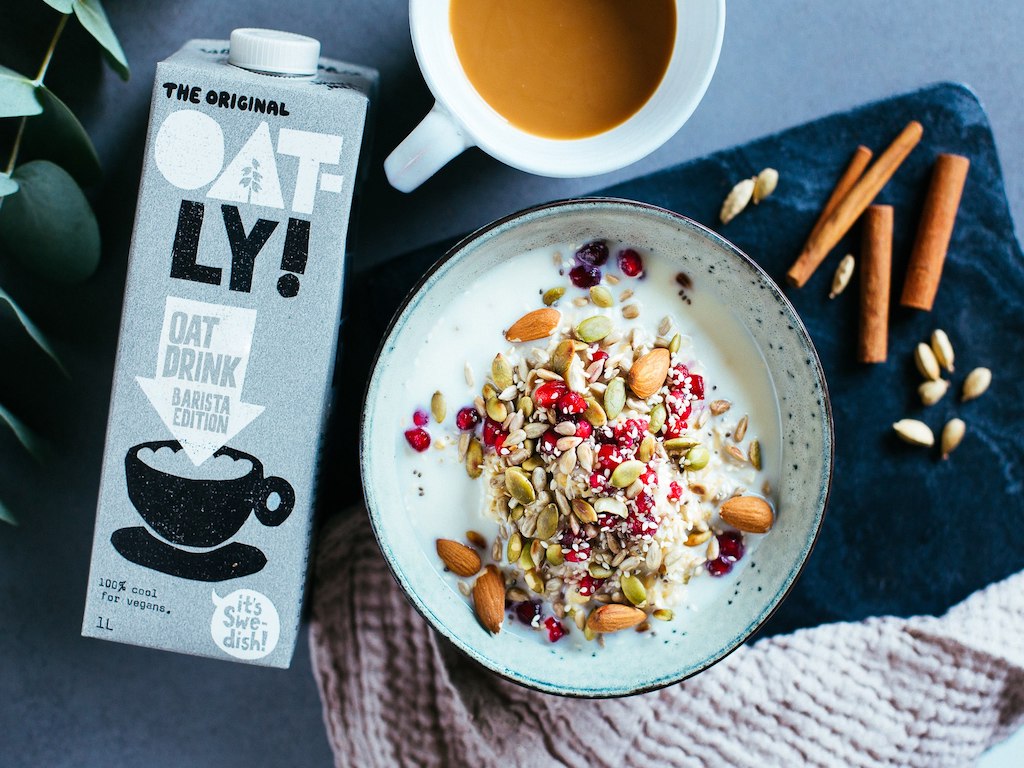2 Mins Read
Oatly, the Swedish plant-based milk alternative made from milled oats that has taken Hong Kong by storm – it is now regularly served up in the city’s two largest coffee chains Starbucks and Pacific Coffee – is expanding into mainland China. Equipped their new office in Shanghai and an original Chinese character symbolising plant-based milk, Oatly is ready to disrupt the Asia’s largest market and it’s about time.
Dairy consumption has skyrocketed in China in recent years. Last year, the retail value of the dairy industry stood at US$ 61 billion, which is a whopping $27 billion increase in just one decade. With plans to triple the consumption of dairy, the Chinese government released recommendations that citizens should increase their dairy intake to 300 grams every day.
This will have serious consequences for the planet. Estimates say that Chinese demand for cow’s milk will spike global greenhouse gas emissions by as much as 35% by 2050. Co-author of Netherlands-based Wagenigen University report Gerard Velthof says that even if Chinese farmers improve the efficiency of their dairy farming, the carbon emissions and nitrogen produced by this sector will still increase by a 20-25%.
With the production of oat-milk coming at only a fraction of the carbon footprint, Oatly might just be the answer. According to a 2018 study from the University of Oxford found that oat-milk production was 60% smaller than the equivalent emissions of dairy. Even compared to other plant-based milks, oat-milk is more resource-efficient – it requires less land and water usage than soy, rice and almond alternatives.
Oatly also provides a solution for the large lactose-intolerant population in China and Asia more widely. Although dairy sales have risen since the country experienced rapid economic growth from the 1980s onwards, much of the population still prefers low-lactose dairy products such as butter and cream. In addition, a significant portion of Chinese dairy consumption comes from processed foods and beverage trends such as “cheese bubble tea”.
And Oatly promises to tackle more than just lactose intolerance. While dairy products are a source of calcium and protein, there are significant health-related concerns with dairy consumption. Not only is it one of the largest sources of saturated fat, it has also been linked to various cancers.
Oatly CEO Toni Petersson says: “The strange thing about what we do is the more we sell, the better it is for everybody.”
The 25-year old company is therefore well-positioned to take on China’s growing dairy demand, while minimising the environmental and health issues that come with this trend. With plans to open a factory in Asia soon, Oatly’s plans to make oat-milk as accessible as regular cow’s milk for consumers are a likely reality.
Lead image courtesy of Oatly.




